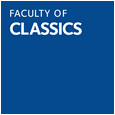Plutarch and Plutarchan scholarship have seen a revival in the last decades, with a fresh focus on him as a subtle and complex writer of biography, popular moral philosophy and other assorted, often encyclopaedic works in the context of the Greek imperial world under Roman rule.1 And yet, there remains among many classicists a lingering perception of him as a busy writer of many books on almost anything, as a writer interesting enough, though not deeply original, small-c conservative, down to earth, and a little pedestrian. There is general awareness, including a kind of potted reception history in the collective memory of the field, that he was once inordinately famous and popular for the Parallel Lives, without which there would be no (or a very different) Shakespearean tragedy, that he was a favourite of Montaigne and Rousseau, as well as the American Founding Fathers and Emerson, and that Mary Shelley has Frankenstein's monster read Plutarch as part of his basic education. For most modern classicists who would not define themselves as Plutarch scholars, by contrast, Plutarch is someone whose work is still considered useful to have as a source, though hardly considered canonical, nor essential to read for its benefits or its sheer pleasure.



